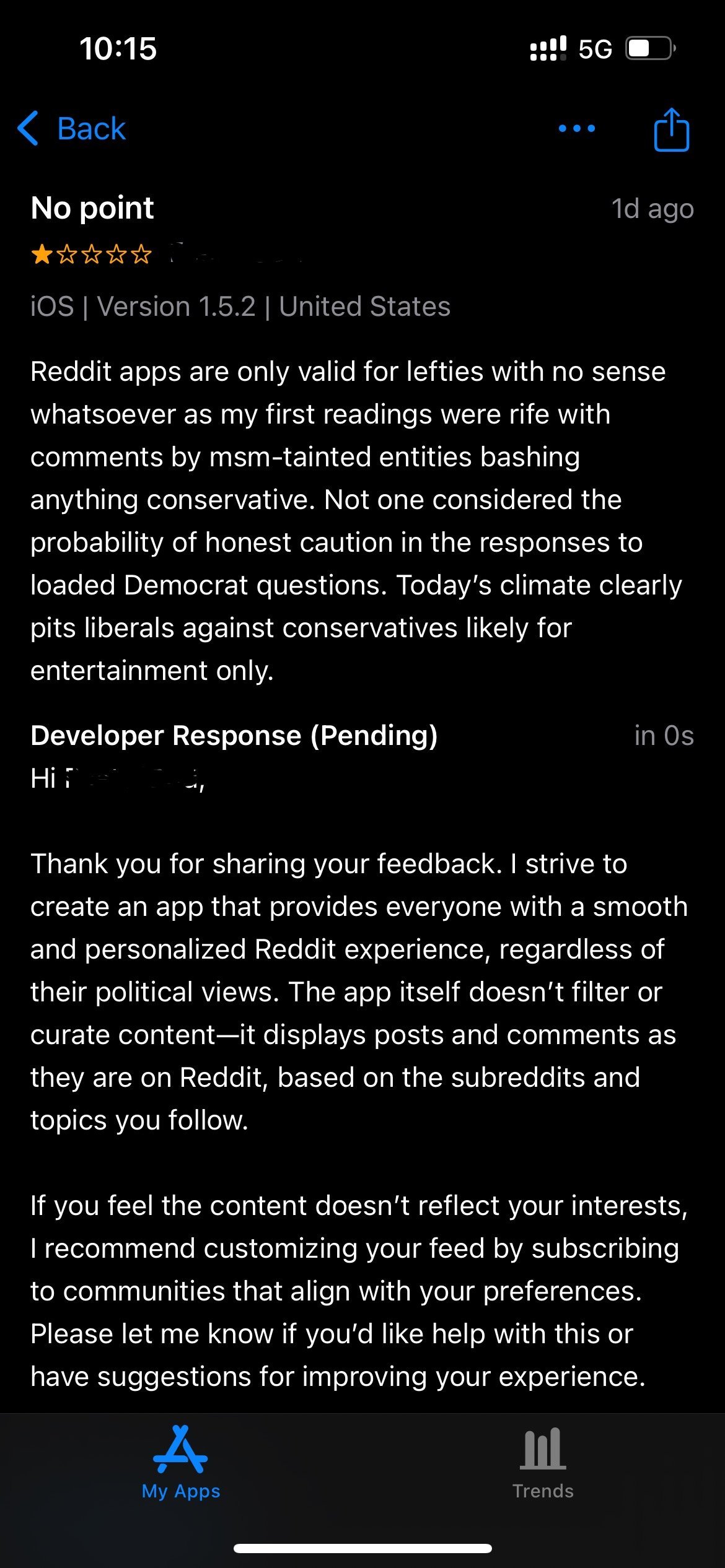With a Trump-driven reduction of nearly 2,000 employees, F.D.A. will Use A.I. in Drug Approvals to ‘Radically Increase Efficiency’
-
Discouraging use of artificial dye is a good idea. It interferes with people's ability to make health conscious choices. Requiring labeling would be a great start.
Thing is they're not banning all dyes, they want “natural” dyes used instead. But “natural” does not necessarily mean better or safer.
Food dye is used to cover up a lot of food crime.
source? i did a brief search but didn’t see anything about it.
Most of us wouldn't eat food that needs to be dyed to look safe to eat, if it weren't dyed, if we had a choice.
You can look at it from a different angle. If there’s nothing actually wrong with the food other than appearance, then food dye prevents food waste.
also:

Why Did the FDA Ban Red Dye #3
The FDA recently removed FD&C Red No. 3 from the list of approved food additives. This was not based on any new data or interpretation of the data, but rather was a response to a petition from fo

Science-Based Medicine (sciencebasedmedicine.org)
There is a deeper political issue here as well that I will not get into, but just point out. The recent Supreme Court decision ending Chevron Deference may have played a role here. The question is – who interprets federal regulations? The Chevron Deference standard says that the experts working in the relevant agency would be given deference when interpreting the law. For example, the FDA could determine how to apply the Delaney Clause based upon an expert level understanding of the complexities of toxicity research. The SC ended such deference, meaning that regulations can be interpreted by the courts without deference to experts. One has to wonder if this otherwise odd decision by the FDA was a response to this.
setting the precedent to remove expert opinion of federal law and replace it with court opinion is not good.
Except they want “natural” dyes used instead which do the same thing. but “natural” does not necessarily mean better or safer.
Yeah. I mean, yes - there's a brain worm damaged person heading the FDA.
Food dye is used to cover up a lot of food crime.
source? i did a brief search but didn’t see anything about.
I was specifically alluding to The Jungle by Upton Sinclair. More generally, modern food production is often still disgusting.
Most of us wouldn't eat food that needs to be dyed to look safe to eat, if it weren't dyed, if we had a choice.
so you could argue food dye prevents food waste. if there’s nothing actually wrong with the food other than appearance.
Fair point, which is why I favor labeling. Let people make their own call, with clear labels providing enough information.
setting the precedent to remove expert opinion of federal law and replace it with court opinion is not good.
No disagreement from me.
My point is that we might not be as quick to hand over control to bull-in-china-shop brain-worm victims if we actually regulated things. We missed that window a long time ago, but it needs to be part of the conversation if there's to be a recovery.
-
I also prefer 100% natural ground insects in my food over artificial dyes.
(Just teasing for funsies)
Haha. Fine by me, if it's clearly labeled.
Edit: I'm not eating any bugs, if I know they're present...unless they're truly delicious...
-
Are we great yet?
Wherever we're going, we're making great time!
-
Text to avoid paywall
The Food and Drug Administration is planning to use artificial intelligence to “radically increase efficiency” in deciding whether to approve new drugs and devices, one of several top priorities laid out in an article published Tuesday in JAMA.
Another initiative involves a review of chemicals and other “concerning ingredients” that appear in U.S. food but not in the food of other developed nations. And officials want to speed up the final stages of making a drug or medical device approval decision to mere weeks, citing the success of Operation Warp Speed during the Covid pandemic when workers raced to curb a spiraling death count.
“The F.D.A. will be focused on delivering faster cures and meaningful treatments for patients, especially those with neglected and rare diseases, healthier food for children and common-sense approaches to rebuild the public trust,” Dr. Marty Makary, the agency commissioner, and Dr. Vinay Prasad, who leads the division that oversees vaccines and gene therapy, wrote in the JAMA article.
The agency plays a central role in pursuing the agenda of the U.S. health secretary, Robert F. Kennedy Jr., and it has already begun to press food makers to eliminate artificial food dyes. The new road map also underscores the Trump administration’s efforts to smooth the way for major industries with an array of efforts aimed at getting products to pharmacies and store shelves quickly.
Some aspects of the proposals outlined in JAMA were met with skepticism, particularly the idea that artificial intelligence is up to the task of shearing months or years from the painstaking work of examining applications that companies submit when seeking approval for a drug or high-risk medical device.
“I don’t want to be dismissive of speeding reviews at the F.D.A.,” said Stephen Holland, a lawyer who formerly advised the House Committee on Energy and Commerce on health care. “I think that there is great potential here, but I’m not seeing the beef yet.”
Oh my God. The reasons why I am happy not to be an American are stacking thicker every week.
-
People will die.
They're counting on it
-
People will die.
It's not a conservative's problem until it effects them personally. By then it's usually too late, but at least they feel bad about that one issue for a while.
-
Text to avoid paywall
The Food and Drug Administration is planning to use artificial intelligence to “radically increase efficiency” in deciding whether to approve new drugs and devices, one of several top priorities laid out in an article published Tuesday in JAMA.
Another initiative involves a review of chemicals and other “concerning ingredients” that appear in U.S. food but not in the food of other developed nations. And officials want to speed up the final stages of making a drug or medical device approval decision to mere weeks, citing the success of Operation Warp Speed during the Covid pandemic when workers raced to curb a spiraling death count.
“The F.D.A. will be focused on delivering faster cures and meaningful treatments for patients, especially those with neglected and rare diseases, healthier food for children and common-sense approaches to rebuild the public trust,” Dr. Marty Makary, the agency commissioner, and Dr. Vinay Prasad, who leads the division that oversees vaccines and gene therapy, wrote in the JAMA article.
The agency plays a central role in pursuing the agenda of the U.S. health secretary, Robert F. Kennedy Jr., and it has already begun to press food makers to eliminate artificial food dyes. The new road map also underscores the Trump administration’s efforts to smooth the way for major industries with an array of efforts aimed at getting products to pharmacies and store shelves quickly.
Some aspects of the proposals outlined in JAMA were met with skepticism, particularly the idea that artificial intelligence is up to the task of shearing months or years from the painstaking work of examining applications that companies submit when seeking approval for a drug or high-risk medical device.
“I don’t want to be dismissive of speeding reviews at the F.D.A.,” said Stephen Holland, a lawyer who formerly advised the House Committee on Energy and Commerce on health care. “I think that there is great potential here, but I’m not seeing the beef yet.”
This could be a good use of AI. Since this regime is doing it, and since some of their claims are pretty unrealistic, it probably won't be. But, ML has been used for a while to help identify new drug compounds, find interactions, etc. It could be very useful in the FDA's work - I'm honestly surprised to hear that they're only just now considering using it.
The Four Thieves Vinegar Collective uses some software from MIT ASKCOS that uses neural networks to help identify reactions and retrosynthesis chains to produce chemical compounds using cheap, homemade bioreactors. Famously, they are doing this to make mifepristone available for people in areas of the US without access to abortion care.
You can check it out here. It's a good example of a very positive use-case for an AI/ML tool in medicine.
-
Text to avoid paywall
The Food and Drug Administration is planning to use artificial intelligence to “radically increase efficiency” in deciding whether to approve new drugs and devices, one of several top priorities laid out in an article published Tuesday in JAMA.
Another initiative involves a review of chemicals and other “concerning ingredients” that appear in U.S. food but not in the food of other developed nations. And officials want to speed up the final stages of making a drug or medical device approval decision to mere weeks, citing the success of Operation Warp Speed during the Covid pandemic when workers raced to curb a spiraling death count.
“The F.D.A. will be focused on delivering faster cures and meaningful treatments for patients, especially those with neglected and rare diseases, healthier food for children and common-sense approaches to rebuild the public trust,” Dr. Marty Makary, the agency commissioner, and Dr. Vinay Prasad, who leads the division that oversees vaccines and gene therapy, wrote in the JAMA article.
The agency plays a central role in pursuing the agenda of the U.S. health secretary, Robert F. Kennedy Jr., and it has already begun to press food makers to eliminate artificial food dyes. The new road map also underscores the Trump administration’s efforts to smooth the way for major industries with an array of efforts aimed at getting products to pharmacies and store shelves quickly.
Some aspects of the proposals outlined in JAMA were met with skepticism, particularly the idea that artificial intelligence is up to the task of shearing months or years from the painstaking work of examining applications that companies submit when seeking approval for a drug or high-risk medical device.
“I don’t want to be dismissive of speeding reviews at the F.D.A.,” said Stephen Holland, a lawyer who formerly advised the House Committee on Energy and Commerce on health care. “I think that there is great potential here, but I’m not seeing the beef yet.”
I hope by AI they don't mean LLMs because that is not the correct architecture for this job but definitely what every crook would go for to get funds.
-
Oh my God. The reasons why I am happy not to be an American are stacking thicker every week.
Only weekly?
-
......wait, this is a bad idea?
Depends, did you take the drugs yet?
-
Text to avoid paywall
The Food and Drug Administration is planning to use artificial intelligence to “radically increase efficiency” in deciding whether to approve new drugs and devices, one of several top priorities laid out in an article published Tuesday in JAMA.
Another initiative involves a review of chemicals and other “concerning ingredients” that appear in U.S. food but not in the food of other developed nations. And officials want to speed up the final stages of making a drug or medical device approval decision to mere weeks, citing the success of Operation Warp Speed during the Covid pandemic when workers raced to curb a spiraling death count.
“The F.D.A. will be focused on delivering faster cures and meaningful treatments for patients, especially those with neglected and rare diseases, healthier food for children and common-sense approaches to rebuild the public trust,” Dr. Marty Makary, the agency commissioner, and Dr. Vinay Prasad, who leads the division that oversees vaccines and gene therapy, wrote in the JAMA article.
The agency plays a central role in pursuing the agenda of the U.S. health secretary, Robert F. Kennedy Jr., and it has already begun to press food makers to eliminate artificial food dyes. The new road map also underscores the Trump administration’s efforts to smooth the way for major industries with an array of efforts aimed at getting products to pharmacies and store shelves quickly.
Some aspects of the proposals outlined in JAMA were met with skepticism, particularly the idea that artificial intelligence is up to the task of shearing months or years from the painstaking work of examining applications that companies submit when seeking approval for a drug or high-risk medical device.
“I don’t want to be dismissive of speeding reviews at the F.D.A.,” said Stephen Holland, a lawyer who formerly advised the House Committee on Energy and Commerce on health care. “I think that there is great potential here, but I’m not seeing the beef yet.”
Can AI reliably tell if a cat is longer than a banana yet?
-
Depends, did you take the drugs yet?
No. I was hoping they'd be blueberry flavored!
-
This could be a good use of AI. Since this regime is doing it, and since some of their claims are pretty unrealistic, it probably won't be. But, ML has been used for a while to help identify new drug compounds, find interactions, etc. It could be very useful in the FDA's work - I'm honestly surprised to hear that they're only just now considering using it.
The Four Thieves Vinegar Collective uses some software from MIT ASKCOS that uses neural networks to help identify reactions and retrosynthesis chains to produce chemical compounds using cheap, homemade bioreactors. Famously, they are doing this to make mifepristone available for people in areas of the US without access to abortion care.
You can check it out here. It's a good example of a very positive use-case for an AI/ML tool in medicine.
Properly implemented machine learning, sure.
These dimwits are genuinely just gonna feed everything to a second rate LLM and treat the output as the word of God.
-
Text to avoid paywall
The Food and Drug Administration is planning to use artificial intelligence to “radically increase efficiency” in deciding whether to approve new drugs and devices, one of several top priorities laid out in an article published Tuesday in JAMA.
Another initiative involves a review of chemicals and other “concerning ingredients” that appear in U.S. food but not in the food of other developed nations. And officials want to speed up the final stages of making a drug or medical device approval decision to mere weeks, citing the success of Operation Warp Speed during the Covid pandemic when workers raced to curb a spiraling death count.
“The F.D.A. will be focused on delivering faster cures and meaningful treatments for patients, especially those with neglected and rare diseases, healthier food for children and common-sense approaches to rebuild the public trust,” Dr. Marty Makary, the agency commissioner, and Dr. Vinay Prasad, who leads the division that oversees vaccines and gene therapy, wrote in the JAMA article.
The agency plays a central role in pursuing the agenda of the U.S. health secretary, Robert F. Kennedy Jr., and it has already begun to press food makers to eliminate artificial food dyes. The new road map also underscores the Trump administration’s efforts to smooth the way for major industries with an array of efforts aimed at getting products to pharmacies and store shelves quickly.
Some aspects of the proposals outlined in JAMA were met with skepticism, particularly the idea that artificial intelligence is up to the task of shearing months or years from the painstaking work of examining applications that companies submit when seeking approval for a drug or high-risk medical device.
“I don’t want to be dismissive of speeding reviews at the F.D.A.,” said Stephen Holland, a lawyer who formerly advised the House Committee on Energy and Commerce on health care. “I think that there is great potential here, but I’m not seeing the beef yet.”
Efficiency =/= Accuracy or safety
I can efficiently put a screw in drywall with an electric drill, but it doesn’t mean it will hold it up or attach it to anything.
-
Text to avoid paywall
The Food and Drug Administration is planning to use artificial intelligence to “radically increase efficiency” in deciding whether to approve new drugs and devices, one of several top priorities laid out in an article published Tuesday in JAMA.
Another initiative involves a review of chemicals and other “concerning ingredients” that appear in U.S. food but not in the food of other developed nations. And officials want to speed up the final stages of making a drug or medical device approval decision to mere weeks, citing the success of Operation Warp Speed during the Covid pandemic when workers raced to curb a spiraling death count.
“The F.D.A. will be focused on delivering faster cures and meaningful treatments for patients, especially those with neglected and rare diseases, healthier food for children and common-sense approaches to rebuild the public trust,” Dr. Marty Makary, the agency commissioner, and Dr. Vinay Prasad, who leads the division that oversees vaccines and gene therapy, wrote in the JAMA article.
The agency plays a central role in pursuing the agenda of the U.S. health secretary, Robert F. Kennedy Jr., and it has already begun to press food makers to eliminate artificial food dyes. The new road map also underscores the Trump administration’s efforts to smooth the way for major industries with an array of efforts aimed at getting products to pharmacies and store shelves quickly.
Some aspects of the proposals outlined in JAMA were met with skepticism, particularly the idea that artificial intelligence is up to the task of shearing months or years from the painstaking work of examining applications that companies submit when seeking approval for a drug or high-risk medical device.
“I don’t want to be dismissive of speeding reviews at the F.D.A.,” said Stephen Holland, a lawyer who formerly advised the House Committee on Energy and Commerce on health care. “I think that there is great potential here, but I’m not seeing the beef yet.”
The guy on the photo has the bottom half of a huge head and the eyes up of a small head. Totally weird.
-
No. I was hoping they'd be blueberry flavored!
That's on the way out
-
Can AI reliably tell if a cat is longer than a banana yet?
An african cat or a european cat?
-
Text to avoid paywall
The Food and Drug Administration is planning to use artificial intelligence to “radically increase efficiency” in deciding whether to approve new drugs and devices, one of several top priorities laid out in an article published Tuesday in JAMA.
Another initiative involves a review of chemicals and other “concerning ingredients” that appear in U.S. food but not in the food of other developed nations. And officials want to speed up the final stages of making a drug or medical device approval decision to mere weeks, citing the success of Operation Warp Speed during the Covid pandemic when workers raced to curb a spiraling death count.
“The F.D.A. will be focused on delivering faster cures and meaningful treatments for patients, especially those with neglected and rare diseases, healthier food for children and common-sense approaches to rebuild the public trust,” Dr. Marty Makary, the agency commissioner, and Dr. Vinay Prasad, who leads the division that oversees vaccines and gene therapy, wrote in the JAMA article.
The agency plays a central role in pursuing the agenda of the U.S. health secretary, Robert F. Kennedy Jr., and it has already begun to press food makers to eliminate artificial food dyes. The new road map also underscores the Trump administration’s efforts to smooth the way for major industries with an array of efforts aimed at getting products to pharmacies and store shelves quickly.
Some aspects of the proposals outlined in JAMA were met with skepticism, particularly the idea that artificial intelligence is up to the task of shearing months or years from the painstaking work of examining applications that companies submit when seeking approval for a drug or high-risk medical device.
“I don’t want to be dismissive of speeding reviews at the F.D.A.,” said Stephen Holland, a lawyer who formerly advised the House Committee on Energy and Commerce on health care. “I think that there is great potential here, but I’m not seeing the beef yet.”
ai has a place in drug development, but this is not how it should be used at all
there should always be a reliable human system to double check the results of the model
-
Text to avoid paywall
The Food and Drug Administration is planning to use artificial intelligence to “radically increase efficiency” in deciding whether to approve new drugs and devices, one of several top priorities laid out in an article published Tuesday in JAMA.
Another initiative involves a review of chemicals and other “concerning ingredients” that appear in U.S. food but not in the food of other developed nations. And officials want to speed up the final stages of making a drug or medical device approval decision to mere weeks, citing the success of Operation Warp Speed during the Covid pandemic when workers raced to curb a spiraling death count.
“The F.D.A. will be focused on delivering faster cures and meaningful treatments for patients, especially those with neglected and rare diseases, healthier food for children and common-sense approaches to rebuild the public trust,” Dr. Marty Makary, the agency commissioner, and Dr. Vinay Prasad, who leads the division that oversees vaccines and gene therapy, wrote in the JAMA article.
The agency plays a central role in pursuing the agenda of the U.S. health secretary, Robert F. Kennedy Jr., and it has already begun to press food makers to eliminate artificial food dyes. The new road map also underscores the Trump administration’s efforts to smooth the way for major industries with an array of efforts aimed at getting products to pharmacies and store shelves quickly.
Some aspects of the proposals outlined in JAMA were met with skepticism, particularly the idea that artificial intelligence is up to the task of shearing months or years from the painstaking work of examining applications that companies submit when seeking approval for a drug or high-risk medical device.
“I don’t want to be dismissive of speeding reviews at the F.D.A.,” said Stephen Holland, a lawyer who formerly advised the House Committee on Energy and Commerce on health care. “I think that there is great potential here, but I’m not seeing the beef yet.”
So we're going to depend on AI, which can't reliably remember how many fingers humans have, to take over medical science roles. Neat!
-
Text to avoid paywall
The Food and Drug Administration is planning to use artificial intelligence to “radically increase efficiency” in deciding whether to approve new drugs and devices, one of several top priorities laid out in an article published Tuesday in JAMA.
Another initiative involves a review of chemicals and other “concerning ingredients” that appear in U.S. food but not in the food of other developed nations. And officials want to speed up the final stages of making a drug or medical device approval decision to mere weeks, citing the success of Operation Warp Speed during the Covid pandemic when workers raced to curb a spiraling death count.
“The F.D.A. will be focused on delivering faster cures and meaningful treatments for patients, especially those with neglected and rare diseases, healthier food for children and common-sense approaches to rebuild the public trust,” Dr. Marty Makary, the agency commissioner, and Dr. Vinay Prasad, who leads the division that oversees vaccines and gene therapy, wrote in the JAMA article.
The agency plays a central role in pursuing the agenda of the U.S. health secretary, Robert F. Kennedy Jr., and it has already begun to press food makers to eliminate artificial food dyes. The new road map also underscores the Trump administration’s efforts to smooth the way for major industries with an array of efforts aimed at getting products to pharmacies and store shelves quickly.
Some aspects of the proposals outlined in JAMA were met with skepticism, particularly the idea that artificial intelligence is up to the task of shearing months or years from the painstaking work of examining applications that companies submit when seeking approval for a drug or high-risk medical device.
“I don’t want to be dismissive of speeding reviews at the F.D.A.,” said Stephen Holland, a lawyer who formerly advised the House Committee on Energy and Commerce on health care. “I think that there is great potential here, but I’m not seeing the beef yet.”
This country is fucking toast moment #236






